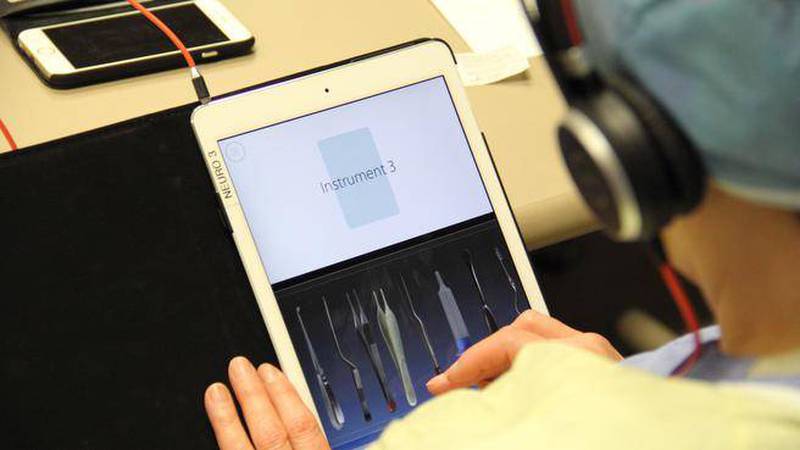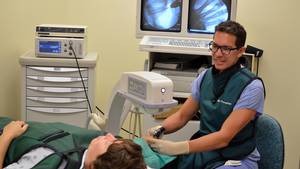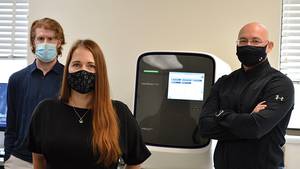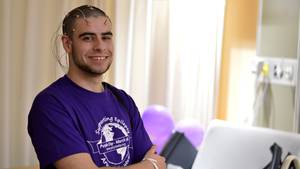Perioperative nurses, responsible for the safety and comfort of patients before, during and after surgery, are the unsung heroes of the operating room.
They must also supply surgeons with the right instruments at the right times throughout a procedure.
Highly specialized, perioperative nurses are often assigned to a specific surgical team, each with its own procedures and instruments to be memorized. More often, these nurses are being assigned to surgical procedures that are increasingly complex.
“That can be an anxiety-provoking situation,” says Dr. David Clarke, head of neurosurgery at the QEII. “Our OR nurses might be asked to be scrubbed for an aneurysm one day, then a complex tumour case the next.”
Dr. Clarke saw this educational gap as an opportunity. In August 2009, when Dr. Clarke made history by performing the world’s first virtual reality brain surgery, he saw the potential for simulation-based learning for all aspects of health care. In cooperation with the British Columbia based software company, Conquer Mobile, Dr. Clarke and his colleagues developed PeriopSim, a mobile app which allows perioperative nurses to go through the motions of specific surgeries, all in a video-game format.
“This kind of technology provides a refresher, if you like, just before you go into surgery,” says Dr Clarke.
“It can be used by nurses and residents alike.”
At its most basic, the app requires the learner to identify surgical instruments during a simulated procedure. As the app has continued to evolve, so too have the simulations it offers. Some, for example, are accompanied with video footage showing key steps of a surgery, starring the surgical staff of the QEII. The learner is scored in each round based on their ability to identify instruments and the speed with which they do so.
“From an education perspective, I think it’s exciting,” says Cindy Fulmore, a nurse and clinical educator at the QEII. “Staff can’t take a set of instruments home to practice with, but they can bring the app and learn on their own time. It’s also fun.”
The benefits don’t end there. Apart from bringing nurses up to speed on the instruments they‘ll be using, the app also gives nurses-in-training a taste of the operating room.
“To get into the routine of surgery is the real nerve-racking part of training,” she says. “We could have someone in a classroom for days and teach them the name of every instrument, but learning its real-life application is something else entirely.”
But does learning on an iPad transfer into the operating room? Dr. Clarke approached this question with a study conducted in the spring of 2016; the first-ever to examine the true value of simulation learning for surgical instrumentation. With 100 nurse participants, this study evaluated how well they learned from the application and, more importantly, how well that knowledge was retained.
While the detailed data analysis from this study is still underway, Dr. Clarke says that it is clear that the app is an effective learning tool.
“We see an advantage to having used the application: the nurses are faster and more accurate in correctly identifying the real instruments,” he says.
This particular app and others are available on the App Store (search Conquer Mobile for a demo). The potential of simulated learning is great, Dr. Clarke says, both in his speciality and in others.
“I think we have a real opportunity to continue being at the forefront of this technology,” he says. “It could truly revolutionize the way we train the healthcare teams of the future.”








